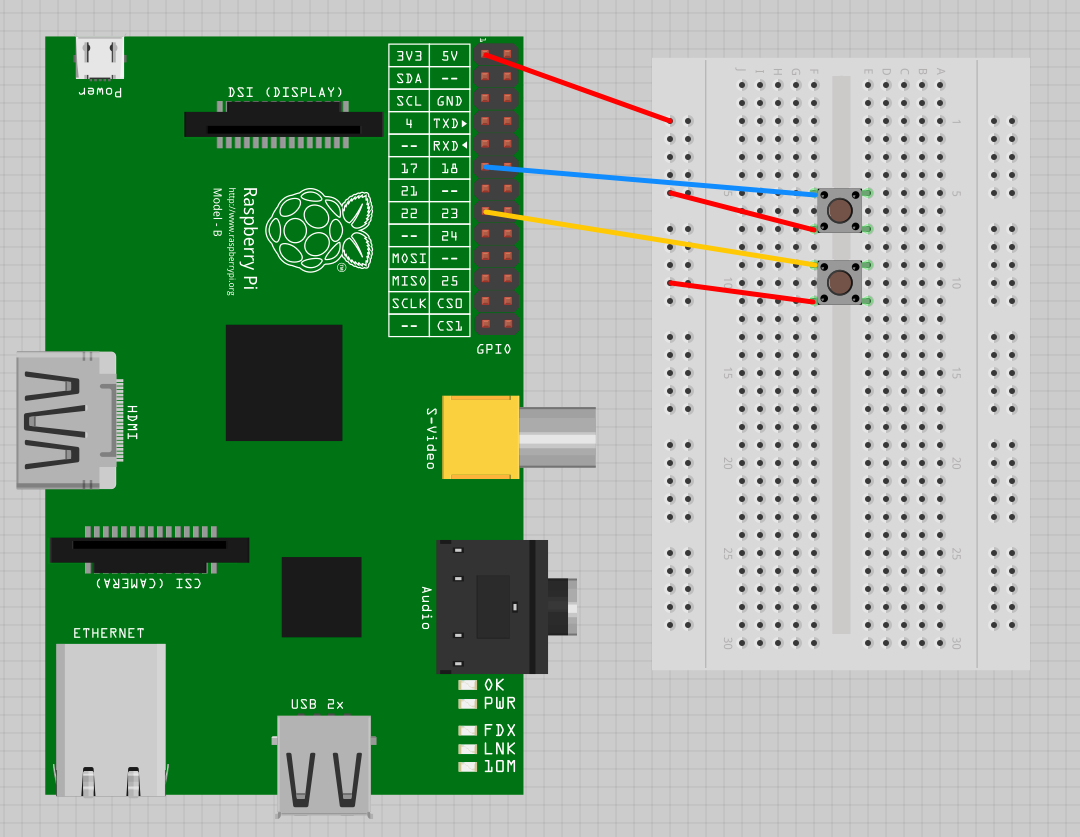Converts a Raspberry Pi into a music player. Once booted, the Pi will start playing music from the first detected USB drive (outputting to the 3.5mm audio jack).
- Supports many audio encodings (omxplayer)
- Supports playlists via directories on the USB drive
- Continues playing the previous playlist on boot
- Supports "next song" and "next playlist" buttons
- Uses udiskie to continuously mount any USB drive that is plugged in (hence, you can switch USB drives while music is playing)
To get this running on your Raspberry Pi, follow these instructions:
- Install the following prerequisite packages:
qemuqemu-user-staticbinfmt-support - Plug in your SD card, and use
lsblkto determine your SD card's device file (e.g./dev/mmcblk0) - Run
curl -s 'https://raw.githubusercontent.com/seymour7/pi-music-player/master/install.sh' | sudo shand follow the prompts
Note: If install.sh exits with this error chroot: failed to run command ‘/usr/bin/bash’: Exec format error after attempting to chroot into the SD's mount point, you most likely need to enable 'ARM to x86' translation (see here and here):
sudo update-binfmts --enable qemu-arm
Attach push-buttons to pin 17 (next song) and 22 (next playlist) without any pull up/down resistors (the Raspberry Pi has built-in pull-up and pull-down resistors which are enabled in player.py).
Each directory is a different playlist and should consist of only audio files. There should be at least one playlist on the USB drive (hence, at least 1 directory in the root of the drive). See the example below.
$ tree /run/media/michael/C2EF-215F/
/run/media/michael/C2EF-215F/
├── Marathon Motivation
│ ├── Bon Jovi - Its My Life.mp3
│ ├── Eminem - Lose Yourself.mp3
│ └── Survivor - Eye Of The Tiger.mp3
└── Old Songs
├── Gwen Stefani - Hollaback Girl.mp3
└── The Killers - Mr. Brightside.mp3
2 directories, 5 files
Once everything is installed, just boot the Pi, plug in a USB drive and connect some speakers/headphones to the audio jack.
If your Raspberry Pi has booted and no music is playing, I'd recommend logging in to the Pi and checking the logs for the music player service:
journalctl -u pi-music-player
I followed this guide to create a custom Arch Linux ARM image and drew inspirational for the installation script from this Arch installation script.
Contributions are welcome! Please feel free to submit a Pull Request.
